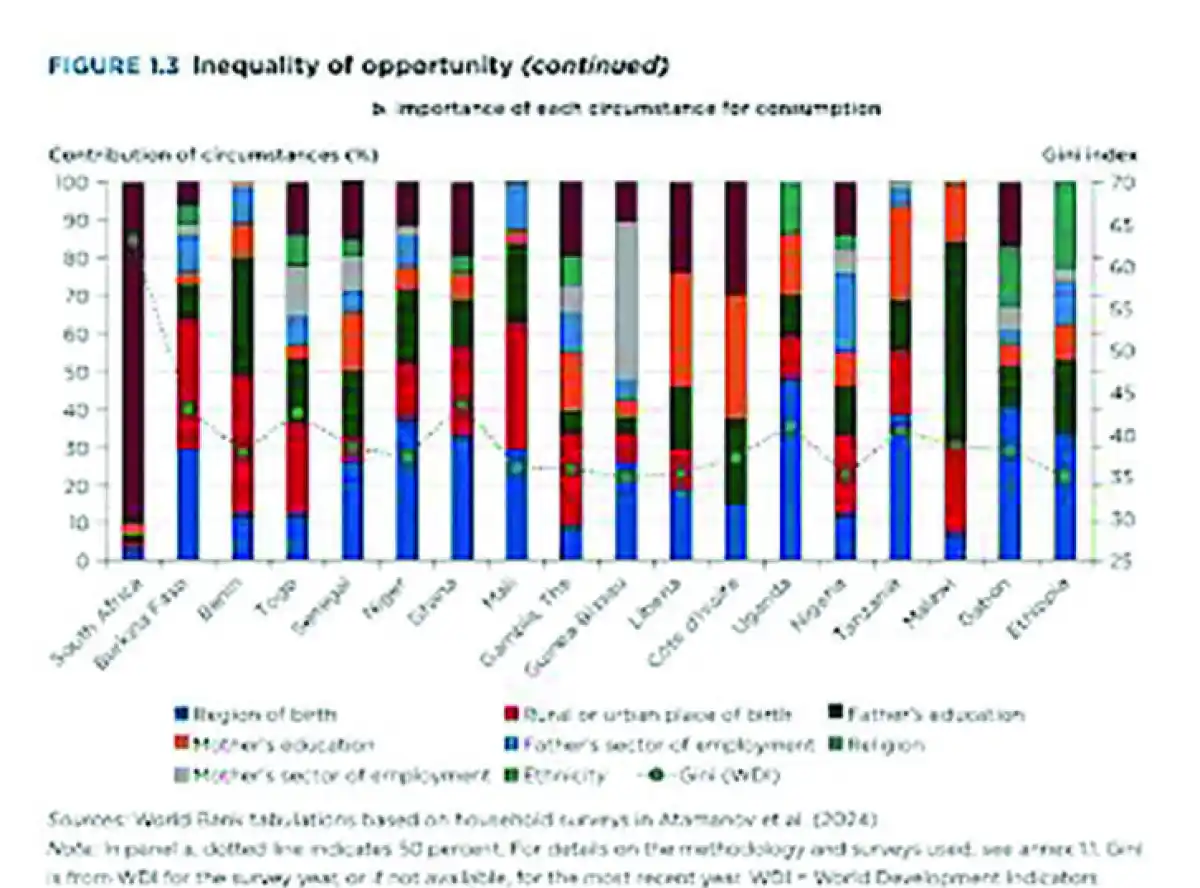
A new World Bank report has indicated that unequal and limited access to jobs, finance and public services such as education and healthcare have increased inequality and stoked poverty in Malawi and other sub-Saharan African countries.
The report, titled ‘Leveling the Playing Field: Addressing Structural Inequalities to Accelerate Poverty Reduction in Africa’, comes when it is getting tougher to get decent jobs in Malawi.
The report says structural inequalities, based on factors such as birthplace, ethnicity, gender and parental background, as well as market and institutional distortions create advantages for a few and disadvantages for many.
As a result, the bank says, Africa is the world’s second most unequal region after Latin America and the only one where extreme poverty reduction has stalled in recent years.
It notes that while extreme poverty–defined as people who live on less than $2.15 a day–has rapidly declined globally to single digits, Africa’s poverty rate stood at 38 percent in 2022, the highest among all regions.
While the region today hosts 60 percent of the globe’s extremely poor population, this share could rise to 87 percent by 2030, without significant reforms.
Co-author of the report, Nistha Sinha, says there is nothing inevitable about structural inequalities.
“As successful country examples show, barriers to opportunities can be removed and replaced with well-designed policies that allow people to build their productive capacities and open access to jobs and markets,” Sinha said.
The report outlines four priority areas to address structural inequalities, including strengthening economic and institutional foundations, to eliminate competition barriers and safeguard property rights.
Other priorities are investing in education, health and infrastructure to build productive capacity, enabling markets to create jobs by improving access to capital, technology and markets as well as using government resources fairly through progressive taxation and efficient public spending. Co-author of the report Gabriela Inchauste says these policy priorities should not be seen in isolation but as overlapping and mutually reinforcing—creating a level playing field while enhancing the region’s productive capacity.
Speaking earlier this year, President Lazarus Chakwera said Malawi created 197,809 new jobs in the last financial year.








0 Comments